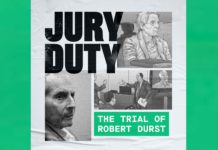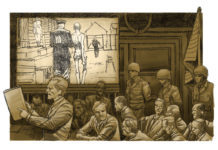This week at crimestory.com we further intensified our commitment to present stories reflecting how the public health crisis is impacting the world of crime and justice.
We also formally announced our partnership with Amanda Knox and Christopher Robinson on their interview series Exoneration and Incarceration in a Time of Pandemic. You can find the exclusive Deadline report of that announcement here.

On Monday, Amanda Knox Interviewed Khalil Rushdan who was convicted of murder and spent 15 years in prison before his conviction was overturned. Rushdan now works for the ACLU of Arizona, helping prisoners assert their rights, and assisting former prisoners with their re-entry into free society.
In the conversation, Khalil discusses the reality of healthcare inside prison, the ACLU’s class action lawsuit against the Arizona Department of Corrections for their failure to provide adequate medical care, and his thoughts on how Governor Doug Ducey’s response to the pandemic has affected these already challenging conditions.
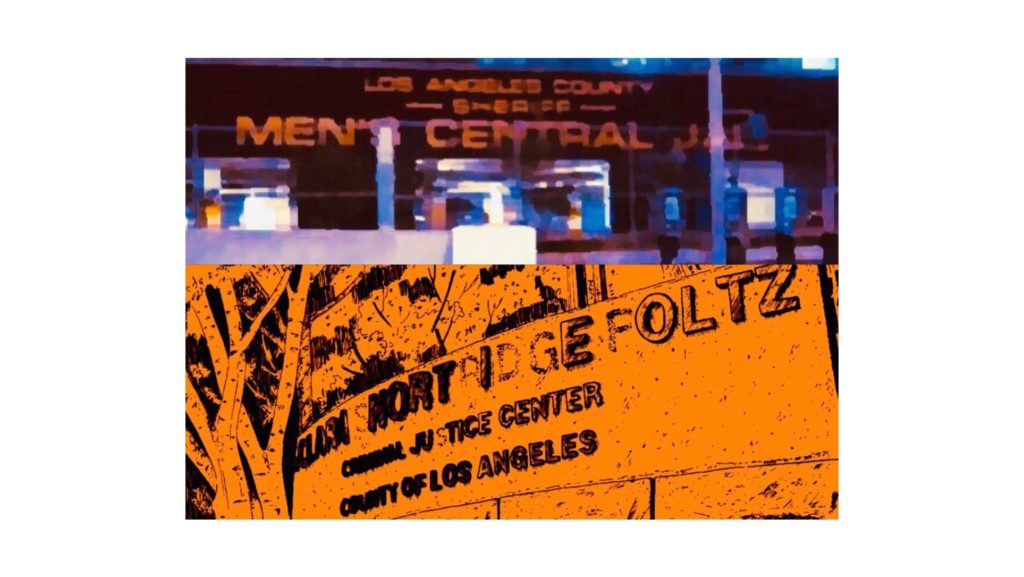
On Wednesday, in my piece entitled COVID-19 Chaos in LA Criminal Courts and Jails I look at the troubled response by the California and Los Angeles judiciary leadership to the public health emergency.
In the story, a Los Angeles-based bar panel attorney offers a harrowing account of what it has been like going to court over the past three weeks.
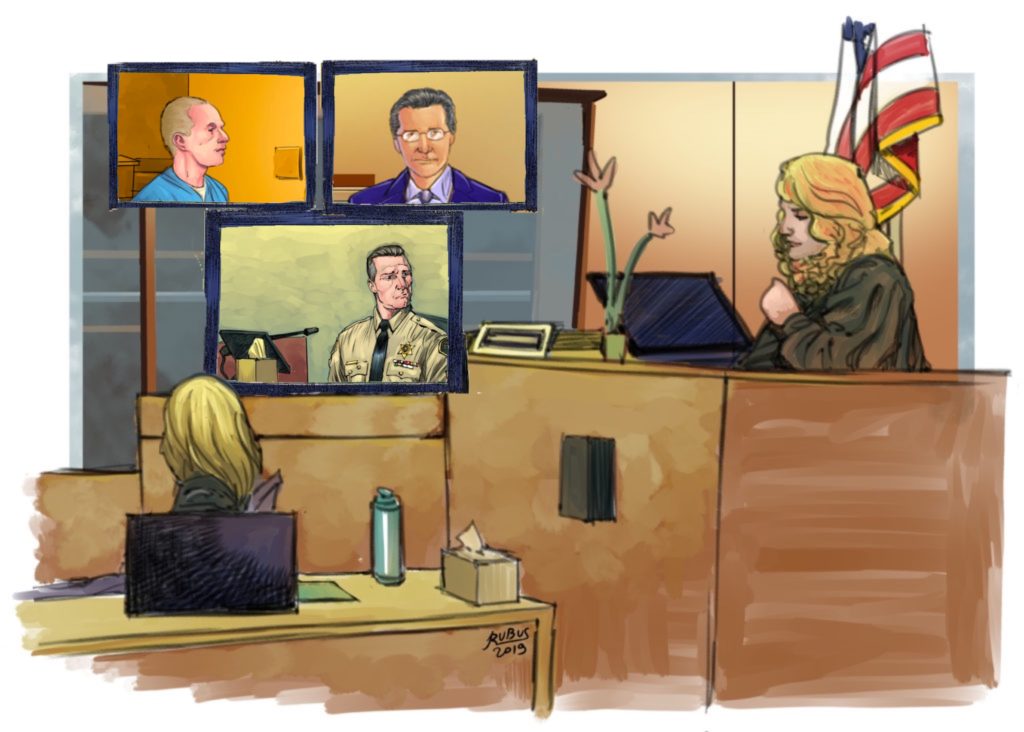
On Friday, we published two pieces. We began with Sean Smith’s story COVID-19 Exposes the Technology Gap in L.A. Courts whichexamines the struggle of these criminal courts – relative to other jurisdictions – to administer available technological tools in order to address both public safety and due process rights during the current public health emergency.
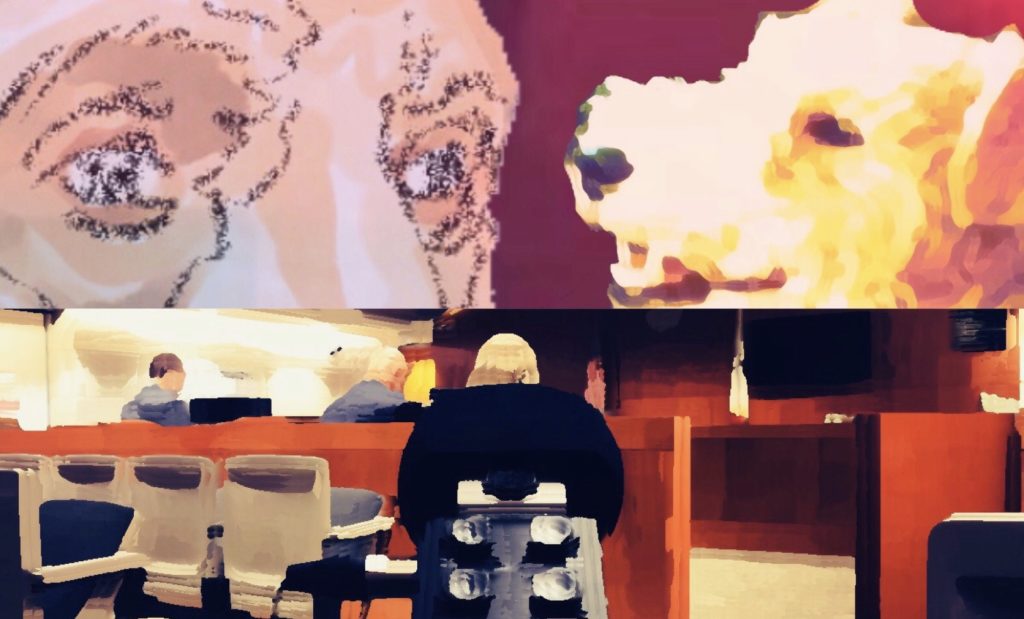
And also on Friday, we presented Chris Tarricone’sA Sweet Little Lamb and a Cold-Blooded Murder (The Durst Trial) In the piece, Chris offers us another impressionistic account of testimony delievered in the trial of Robert Durst for the murder of Susan Berman, before that trial was inerrupted by the COVID-19 crisis.
For those of you wondering how you can catch up on previous Crime Story newsletters, just click here and your question shall be answered.
As is our new custom, we present a summary of Hannah Teich’s curated selection of some of the more interesting stories from Crime Story Daily over the past week. (In order to get to the full essay and the story links, please click through this link to Hannah’s piece at crimestory.com.)
On the criminal justice policy front:
Politico reports that as the coronavirus spreads into the federal prison system, the Bureau of Prisons has moved to broaden the ranks of inmates eligible to be transferred into home confinement.
The New York Law Journal reports that 51 inmates held at Rikers Island on alleged parole violations have been approved for release; and a piece from the New Yorker focuses on parole incarcerations more generally.
And finally, a piece from the Washington Post highlights the importance of including all inmates – not just low-level or nonviolent offenders – in conversations around decarceration.
In muckraker/watchdog reporting:
A piece from the New Republic looks at COVID-19 as the “new American death sentence” for those locked up in our penal system.
The Washington Post goes inside FCI Oakdale in Louisiana, the hardest-hit (by the virus) federal prison in the country.
A piece from Mother Jones shows just how fast the virus can spread in prisons and jails.
And a piece from Lawfare looks at the “long history of coercive health responses in American law.”
In complex crime storytelling:
A piece from D Magazine focuses on the town of Highland Park, Texas, an affluent suburb of Dallas and home to a massive drug trafficking ring involving an unlikely cast of characters.
And in culture/true crime:
A piece from the Daily Beast explores the unlikely comfort of true crime TV during a pandemic.
Psychology Today reviews “The Definition of Insanity,” a new documentary from PBS.
And Variety reviews “The Innocence Files,” Netflix’s latest true crime offering.
Again, you can click here to go to Hannah’s weekly essay and find links to those articles.
Thanks for reading and listening.
Kary Antholis
Publisher/Editor, Crime Story
editor@crimestory.com


